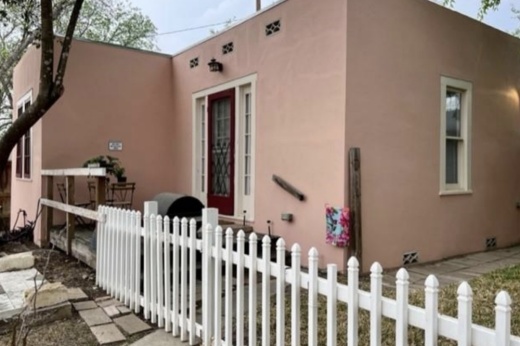San Antonio City Council voted unanimously Nov. 3 to approve 191 changes to the city’s unified development code, or UDC, which provides protocols and requirements for land development and building use.
Some of the more notable revisions include simplifying the process involved with building an accessory dwelling unit, or ADU, or smaller secondary residence on one’s property—something local officials said could help with challenges pertaining to housing affordability.
But the council disapproved a controversial proposal that would have required the city to notify a larger number of groups of developments, and would have enabled overlapping borders between adjacent neighborhood associations and groups.
All UDC changes become effective Jan. 1. The revised ADU code will permit separate utility lines between the main and secondary residential building.
The new ADU code also restricts the smaller structure—colloquially called “casitas” or “granny flats,” officials said—to two stories, removes the one-bedroom limit, and allows construction nearer to property lines.
Several council members said lessening restrictions on constructing and maintaining ADUs is part of a goal in a long-range affordable housing policy strategy formed by the city in 2018.
“We’ve got a lot more work to do as a City Council and as a community, but this is a very important strategic step that we take,” Mayor Ron Nirenberg said.
Council Member Ana Sandoval proposed an amendment to the ADU proposal that essentially would have re-emphasized an existing city ordinance that precludes non-owner occupied short-term rentals in ADU properties.
Some council members said they continue getting complaints from residents about property owners circumventing or ignoring local laws covering short-term rentals within their neighborhood. But Sandoval’s motion failed, receiving majority opposition from the council.
Elsewhere, the council approved another hotly debated UDC amendment that will permit any community organization to opt-in for a wider array of city communications.
Regarding the UDC revision possibly expanding of notification of community groups about developments in their community and overlapping group boundaries, several members of the Government Hill Alliance expressed concern that passing the amendment may not help to distinguish their group from the newer Government Hill Community Association.
According to city staff, the community association proposed the amendment, saying the association complained of not instantly receiving city notifications about such things as planning and zoning cases.
“It will cause confusion and division,” GHA President Rose Hill said.
In another matter, Steve Versteeg of the Tier One Neighborhood Coalition spoke up once more for a proposed amendment that did survive the city review process— making it easier for community organizations to opt-in for city communications.
Answering a question previously posed by Council Member Clayton Perry, city development services director Michael Shannon said 147 of the UDC revisions proposed by city staff will not cost anyone anything.
Nine other city staff-initiated amendments will lead to varying cost increases for affected parties, Shannon said, adding that eight more city staff-proposed changes will decrease costs.
Shannon said cost effects were not required for external UDC amendments, or revisions proposed by residents, community groups, or noncity agencies or utilities.
Per Shannon’s suggestion, the city will resume its five-year UDC review cycle in 2027.
The city was originally scheduled to launch a UDC review cycle in 2020, but it pressed the pause button because of the COVID-19 pandemic.





